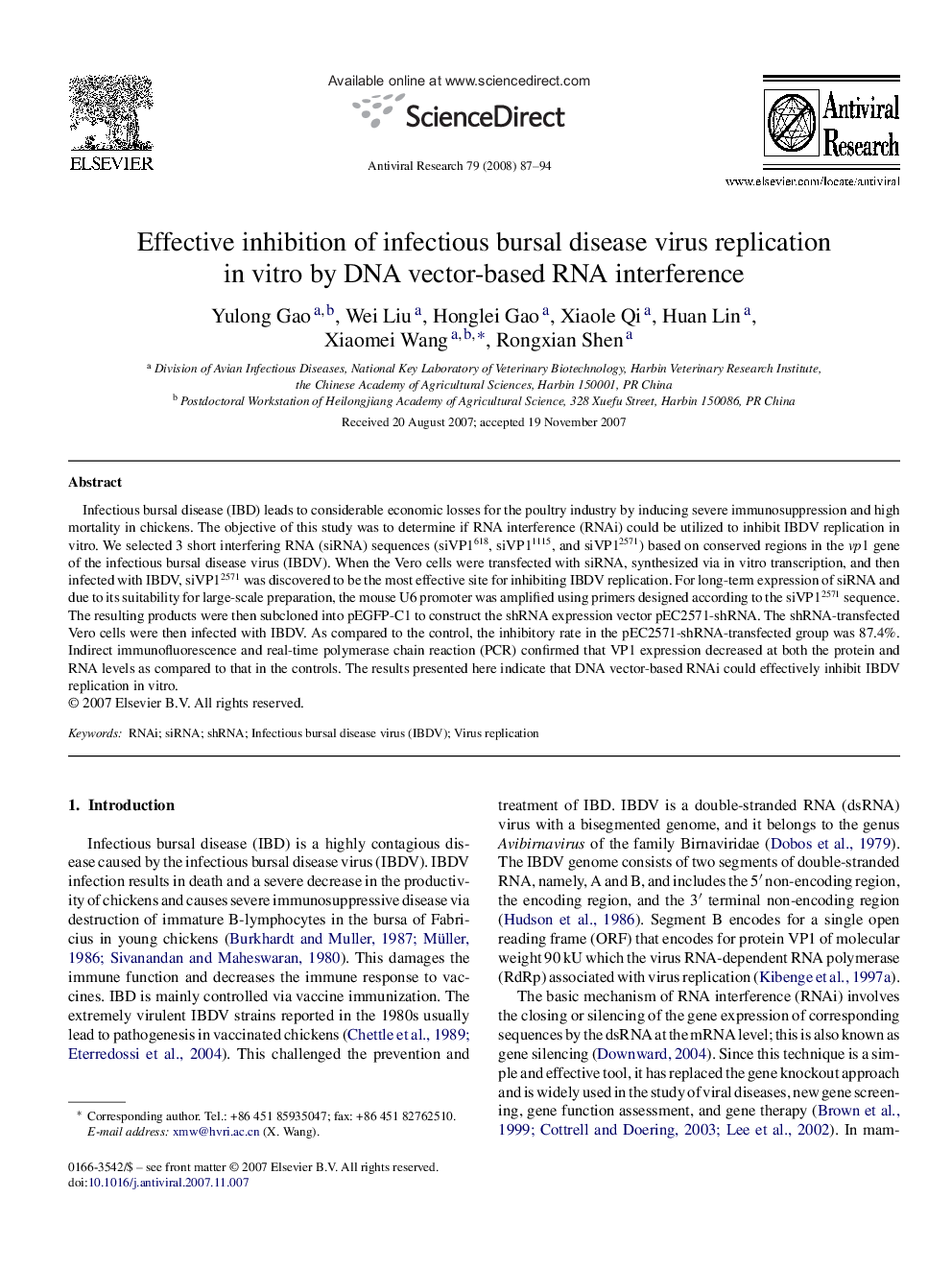| Article ID | Journal | Published Year | Pages | File Type |
|---|---|---|---|---|
| 2511034 | Antiviral Research | 2008 | 8 Pages |
Infectious bursal disease (IBD) leads to considerable economic losses for the poultry industry by inducing severe immunosuppression and high mortality in chickens. The objective of this study was to determine if RNA interference (RNAi) could be utilized to inhibit IBDV replication in vitro. We selected 3 short interfering RNA (siRNA) sequences (siVP1618, siVP11115, and siVP12571) based on conserved regions in the vp1 gene of the infectious bursal disease virus (IBDV). When the Vero cells were transfected with siRNA, synthesized via in vitro transcription, and then infected with IBDV, siVP12571 was discovered to be the most effective site for inhibiting IBDV replication. For long-term expression of siRNA and due to its suitability for large-scale preparation, the mouse U6 promoter was amplified using primers designed according to the siVP12571 sequence. The resulting products were then subcloned into pEGFP-C1 to construct the shRNA expression vector pEC2571-shRNA. The shRNA-transfected Vero cells were then infected with IBDV. As compared to the control, the inhibitory rate in the pEC2571-shRNA-transfected group was 87.4%. Indirect immunofluorescence and real-time polymerase chain reaction (PCR) confirmed that VP1 expression decreased at both the protein and RNA levels as compared to that in the controls. The results presented here indicate that DNA vector-based RNAi could effectively inhibit IBDV replication in vitro.
